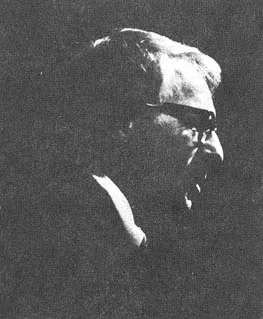Appreciation: Science Fiction Giant Ray Bradbury
Planetary geologist Jim Zimbelman reflects on Ray Bradbury’s legacy
/https://tf-cmsv2-smithsonianmag-media.s3.amazonaws.com/filer/20120607015006bradburythumb.jpg)
As Venus crossed between the sun and the earth on Tuesday evening for the last time until 2117, Ray Bradbury, one of the greatest minds in science fiction, passed with it. At 91 years old, Bradbury died in Los Angeles after a prolonged illness.
Bradbury was best known for his 1953 novel Fahrenheit 451, which imagined a dystopian America where firemen burned books, and The Martian Chronicles, a series of vignettes about life on Mars. Through bizarre settings, Bradbury explored human characters and their reactions to the unknown, according to planetary geologist Jim Zimbelman of the Air and Space Museum.
“His stories always make you think about what it means to be human,” Zimbelman says. This was rare in a genre that deals with fantastic worlds and futuristic technologies.

“Isaac Asimov, for example, had a strong biology background, so he would tend to talk about human physiology in many of his stories,” Zimbelman says. “I would put Bradbury in the realm of psychology. He was more interested in how the human mind works in these different environments and processed the information.”
Bradbury was famously suspicious of how technology could “overwhelm the human spirit,” as Zimbelman says. His stories uncannily predicted developments that are now routine. The oppressive society in Fahrenheit 451, for example, uses automated banking stations similar to ATMs and a communication device called a “digital wall,” a term rendered familiar by Facebook.
In an interview with the Orlando Sentinel in 2000, Bradbury proclaimed that the Internet “is bound to fail…All this electronic stuff is remote, removed from you. The Internet is just a big scam the computer companies cooked up to make you get a computer into every home.”
This Luddite-esque sentiment might be surprising coming from such a respected science fiction writer, but Zimbelman argues that technological advancement was never Bradbury’s interest. “It’s not that he avoided the science, but technology was not the driver in his stories. It was the tool,” says Zimbelman. “His work didn’t so much as stimulate me to study science as it broadened my appreciation of what could be out there, beyond the limitations of what we understood.”
Above all, Bradbury’s plots were about “figuring out how to be consistent with your own internal beliefs in whatever situation you were thrown into.”
This crucial idea may be the reason his work has become a staple of high school English curricula. “Bradbury’s record will be a treasure for the rest of time,” Zimbelman says. “All I can do is try to encourage the young people who aren’t as familiar with his name to not think of it as old fogey literature but to look at it with fresh eyes and realize that no one else had written quite like he had when he started.”
/https://tf-cmsv2-smithsonianmag-media.s3.amazonaws.com/accounts/headshot/ATM-aviva-shen-240.jpg)
/https://tf-cmsv2-smithsonianmag-media.s3.amazonaws.com/accounts/headshot/ATM-aviva-shen-240.jpg)